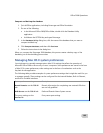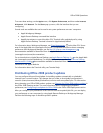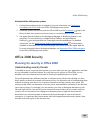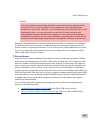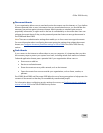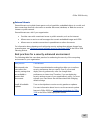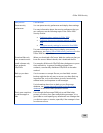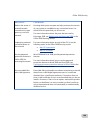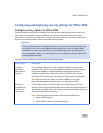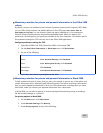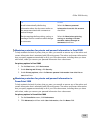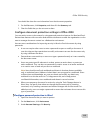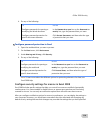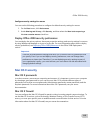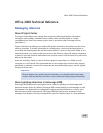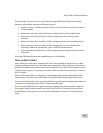
Office 2008 Security
110
Configuring and deploying security settings for Office 2008
Configure privacy options in Office 2008
Preference settings can help you mitigate privacy threats and control the disclosure of personal
information. For example, document metadata may contain the author's name and contact
information. To help ensure a high level of privacy, we recommend that users edit or remove any
author and contact information that is associated with documents.
Important
There are no administrative settings that allow you to enforce security preferences that
you specify. Even if you set and deploy security preferences, users can change these
preferences at a later time. Therefore, if you are deploying security settings as part of
your organization's policy, you must educate your users about the risks associated with
changing default settings.
Configure privacy options as recommended in the following table:
Privacy option Description
Customer
Experience
Improvement
Program
If you choose to participate in the Customer Experience Improvement
Program (CEIP), which is a recommended best practice, Microsoft collects
anonymous feedback including application usage patterns and the
hardware configuration of the user's system. By default, users are not
enrolled in CEIP and they are not required to participate in the program.
Note Microsoft does not collect your name, address, or any other
personally identifiable information when you participate in CEIP.
Document
metadata that
contains user
information
If users share copies of an Excel workbook or a Word document, they
should review any personal and hidden information and decide whether it is
appropriate to include. Users can configure personal information removal in
the Office 2008 Preference settings.
Note Removing personal information affects the following areas:
• Send to Mail Recipient.
• Word 2008 comments and tracked changes.



